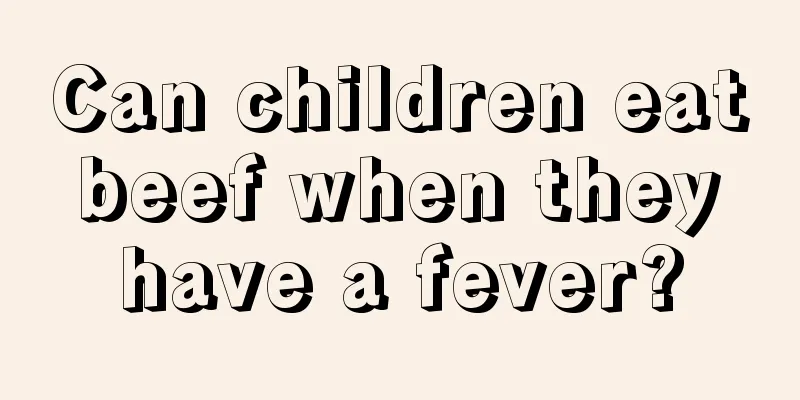The harm of hormone ointment to babies

|
When giving medication to babies, parents must be careful to use as few medications with high hormone content as possible, because the hormones contained in these medications may have a significant impact on the baby's body. It is also quite common for babies to develop skin diseases. The most important way to relieve skin diseases is to use some ointments. What are the dangers if you accidentally use hormone ointment on your baby? Do the hormones in eczema ointments have any effect on children? When a baby has eczema, the skin will become unbearably itchy, and some ointments will become parents' first choice of medicine. However, when they see that the ointments contain certain hormones, they can't help but worry. Experts remind us that there is nothing wrong with using these hormone preparations to relieve itching in principle, but some ointments are weak hormones with general anti-itching effects, and children often fail to achieve the ideal therapeutic effect. If such topical medications are used too frequently and for too long, the child's skin can easily develop hormone resistance, resulting in a reduced response of the skin to hormones. Even applying more ointment will be of no use. Therefore, children should use such drugs with caution and it is best to follow the doctor's advice. Moreover, when using hormone ointment for infant eczema, the following principles must be followed: The first principle: strictly control the indications. Topical hormonal drugs are mainly suitable for various non-infectious skin diseases, such as dermatitis, eczema, psoriasis, pityriasis alba, pityriasis rosea, etc. Skin diseases caused by bacteria, viruses, and fungi such as impetigo, herpes simplex, tinea pedis, etc. are absolute contraindications for topical hormone ointments. The second principle: to master the “degree” of medication. Generally speaking, all hormone ointments have the following statement in their instructions: "Children need to use the drug under adult supervision" and "Long-term use may cause skin atrophy, capillary dilation, pigmentation and secondary infection." This involves the issue of the "degree" of use, one is the duration of use, and the other is the amount used. Generally, continuous use of the drug should not exceed 2 weeks and it should not be used on a large area. If used for too long, in addition to possibly causing hormone-dependent dermatitis, it may also cause local skin atrophy and capillary dilation. Long-term use over a large area may cause systemic side effects due to excessive absorption. The third principle: choose a hormone ointment of appropriate strength. Topical hormone drugs can be divided into weak, medium, strong and super strong according to the degree of their ability to constrict skin blood vessels and inhibit inflammation. Therefore, it is necessary to choose the appropriate ointment according to the severity of the patient's condition, the site of the disease, and the patient's age. Under normal circumstances, only weak and medium-strength hormone ointments are used for infants and young children. Weak hormones are suitable for the face and intertriginous skin, such as 1% hydrocortisone cream and 0.025% dexamethasone cream; medium-strength hormones can be used on the trunk or limbs, such as 0.1% triamcinolone cream, 0.1% mometasone furoate cream, etc. |
<<: Children's lower eyelid redness and swelling
>>: How to make porridge for six-month-old baby
Recommend
How to digest food when children have food accumulation
The most common problem in children is food accum...
Can amblyopia in children be cured?
Amblyopia is a relatively common eye disease, and...
What should I do if my 2-year-old baby has bloodshot eyes?
Sometimes, only adults will have red bloodshot ey...
Baby's hands and feet are hot but back and neck are cold
If parents always feel that their baby's hand...
How to treat ulcers at the corners of the mouth in children
Every winter to early spring, many children suffe...
How to care for infantile hemangioma?
When a baby is young, any slight discomfort in th...
Can red birthmarks go away on their own? Pay attention to treatment
Red birthmarks are present at birth and are a com...
What to do if children's earwax becomes hard lumps
Earwax is usually in powder form and is easier to...
What to do if your child has indigestion and stomach pain
Our children will also encounter some problems in...
What should I do if my baby is allergic to diapers? Experts remind everyone to do this
Nowadays, most diapers are very healthy and safe,...
How to treat eczema in a 3-year-old child?
In general, eczema is a minor illness and not a s...
Are there any sequelae to childhood encephalitis?
Children's encephalitis is generally acute vi...
Why does a 6-year-old boy sweat a lot when sleeping at night?
Summer is here and the weather is hot. Most peopl...
How to induce sweating in children with fever
When a patient has a fever, everyone will let the...
How to measure children's IQ?
Many parents are very concerned about their child...









